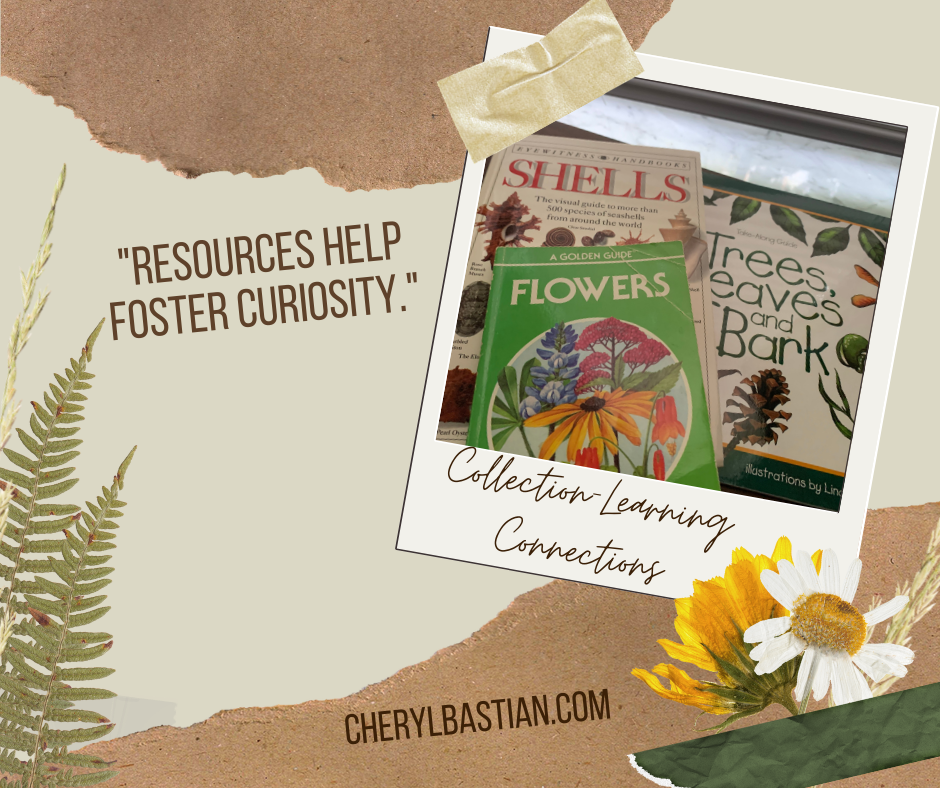The Collection-Learning Connection
/Collections begin with curiosity, an interest in something. Questions. Wonder. Excitement.
Children, being natural scientists, are inquisitive, intrigued by discovery, inviting more questions. In the process, they often begin collecting objects that excite them, making comparisons and continuing experiments, learning always—counting, sorting, comparing, and drawing conclusions based on the discoveries made with their collections. Providing space for their collections and discovery is essential to their growth and development while also providing them with a sense of responsibility for their “belongings”.
Over the past several weeks, we’ve been collecting leaves and rocks; large and small, different hues, unique characteristics. Providing bins for the collections kept items organized and “ready” for exploring and continued discovery. Along the way, I pulled a few field guides from our library shelves, accessible for identification and deeper learning. Our science discovery area grew as a result, leading to more questions. Curiosity, an interest in something, was the catalyst.
What interests your children? The petal patterns in flowers. Shapes of shells. Maybe which car in the bin moves faster down the plywood ramp. Step back and ponder the learning taking place. It matters and it will be remembered.
Common collection items
Pinecones
Marbles
Toy cars
Legos
Rocks
Acorns
Leaves
Shells
Insects
Pennies
Collections can be used as catalysts to studies in other content area.
Collections to science discovery centers
Our science discovery center (a small table near a window sill where light can shower any growing seeds and plants) expands every time a collection begins. The center is simple, yet offers great space for curiosity to grow. Adding our Magiscope and a magnifying glass foster that growth. Intentional and real.
If you are wondering about the nitty-gritty of setting up a science center, Cheryl discusses several ideas in her book Cultivating Curiosity.
What interests are growing in your children?
A collection of stamps given by a grandparent? A pile of rocks? A selection of leaves from a recent walk?









